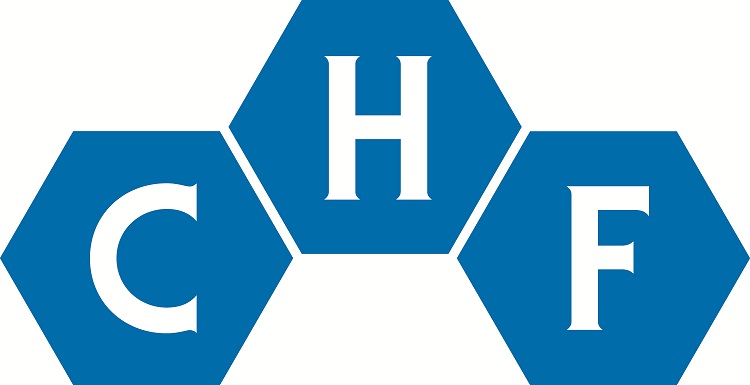 ECS members M. Stanley Whittingham and Yury Gogotsi will be panelists at the upcoming “Electrical Energy Storage Technologies That Enable the Future” symposium, hosted by the Chemical Heritage Foundation. The event will take place on January 11, 2018 in Philadelphia, PA. Read the full program below.
ECS members M. Stanley Whittingham and Yury Gogotsi will be panelists at the upcoming “Electrical Energy Storage Technologies That Enable the Future” symposium, hosted by the Chemical Heritage Foundation. The event will take place on January 11, 2018 in Philadelphia, PA. Read the full program below.
Moderator
Daryl Boudreaux, Principal, Boudreaux & Associates
Panelists
M. Stanley Whittingham, Distinguished Professor of Chemistry and Materials Science and Engineering, SUNY Binghamton
Yury Gogotsi, Distinguished University Professor of Materials Science and Engineering, Drexel University
Program
11:30 am – 12:15 pm: Networking Reception
12:15 pm – 1:00 pm: Luncheon
1:00 pm – 2:30 pm: Sympsoium
Symposium
Many systems and devices we use every day, including our cell phones and laptops, require batteries. Electric cars, solar and wind farms, and off-grid homes need much larger batteries. And we expect smart clothes and the internet to change the way we live, gather, and consume information in the near future. They will all need to be powered, but by much smaller, more flexible, and longer-lasting energy storage devices. The speakers will talk about the discovery of the lithium battery and the long journey from the Sony camcorder battery to the modern lithium-ion battery. They will also explain what is coming after lithium-ion batteries. In particular, “batteries on steroids,” or electrochemical capacitors, that now power buses in many Chinese cities, open the doors of an Airbus 380 in an emergency, and harvest braking energy from SEPTA trains, will be discussed. Finally, future flexible, transparent, microscale, wearable, and other energy storage devices that are expected to become ubiquitous within the next decade will be discussed.
After these short presentations JPS Program Committee member Daryl Boudreaux will moderate a conversation between the two presenters and invite the audience to ask questions.
About M. Stanley Whittingham
Stanley Whittingham is a SUNY Distinguished Professor of chemistry and materials science and engineering at SUNY Binghamton. He is also the director of the NorthEast Center for Chemical Energy Storage, a U.S. Department of Energy Frontier Research Center, based at the Binghamton campus. Whittingham has been active in the field of lithium batteries since 1971 when he won the Young Author Award of the Electrochemical Society for his work on the solid electrolyte beta-alumina. In 1972 he discovered the role of intercalation in battery reactions, which resulted in the first commercial lithium rechargeable batteries that were built by Exxon. In 1988 he returned to academia at SUNY Binghamton to initiate a program in materials chemistry.
Among his many awards was a Japanese Society for the Promotion of Science fellowship in the Department of Physics of the University of Tokyo in 1993. In 2004 he received the Battery Division Research Award from the Electrochemical Society. In 2012 he received the Yeager Award from the International Battery Association for his lifetime contributions to battery research; in 2015, the Lifetime Contributions to Battery Technology Award from NAATBatt International; and in 2017, the Senior Research Award from Solid State Ionics. He is a fellow of both the Electrochemical Society and the Materials Research Society. He is vice chair of the Board of Directors of the New York Battery and Energy Storage Technology Consortium.
Whittingham received his BA and DPhil degrees in chemistry from Oxford University.
About Yury Gogotsi
Yury Gogotsi is the Charles T. and Ruth M. Bach Professor, Distinguished University Professor, and Trustee Chair of materials science and engineering at Drexel University. He also serves as the director of the A. J. Drexel Nanomaterials Institute. His research group works on nanostructured carbons, 2-D carbides, and other nanomaterials for energy, water, and biomedical applications. He has obtained more than 50 patents and has coauthored 2 books; written 16 book chapters and more than 500 papers in peer-reviewed journals; and edited 14 books. He was recognized as a highly cited researcher by Thomson Reuters/Clarivate Analytics in 2014 through 2017.
He has received numerous awards for his research and has been elected a fellow of the American Association for Advancement of Science (AAAS), Materials Research Society, American Ceramic Society, Electrochemical Society, Royal Society of Chemistry, and NanoSMAT Society, as well as an academician of the World Academy of Ceramics and a full member of the International Institute for the Science of Sintering. He also serves on the Materials Research Society Board of Directors and acts as an associate editor of ACS Nano.
He received his MS in 1984 and his PhD in 1986 from Kiev Polytechnic Institute and a DSc degree in 1995 from the Ukrainian Academy of Sciences.

